Humans, Bots, and Digital Twins: Year-End Results of the Strategic Project 'Human Brain Resilience'

HSE University hosted a joint research seminar to review the 2024 results of the Strategic Project 'Human Brain Resilience: Neurocognitive Technologies for Adaptation, Learning, Development and Rehabilitation in a Changing Environment.' The event showcased the progress and outcomes of fundamental and applied projects focused on developing technologies for neurodiagnostics, neuroadaptation, and neurorehabilitation—collectively known as 3N technologies. The objective is to develop tools that can help prevent neurogenic and psychiatric disorders or alleviate their consequences.
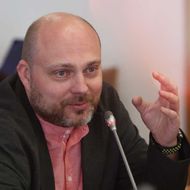
Igor Sokolov
The Strategic Project 'Human Brain Resilience' was launched at HSE University in 2023 as part of the Priority 2030 programme, recalled Igor Sokolov, Administrative Manager of the strategic project. 'We dedicated the first year to establishing processes. It wasn’t always easy or straightforward, but I believe we managed to navigate through it successfully. It is important that the goals and objectives of this strategic project align fully with the list, approved by the President of Russia, of key knowledge-intensive technologies identified as critical until 2030, which include biomedical and cognitive technologies aimed at promoting healthy and active longevity,' he emphasised.
Currently, the strategic project comprises 12 individual initiatives, all interconnected to achieve a shared goal. The project activities involve 12 subdivisions and 4 campuses of HSE University, along with 14 partners, and have led to the establishment of the consortium ‘Transfer of Neurocognitive Technologies.’ As part of the strategic project, the first centre for assistive technologies and augmented intelligence is being established to serve as a comprehensive research infrastructure, a platform for generating and implementing ideas in neuroscience and neurotechnology, and a hub for their commercialisation.
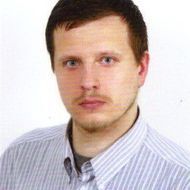
Vasilii Gromov
The project titled 'Multidisciplinary Human Brain Research: Behavioural, Psychophysiological, and Mathematical Approaches to Cognitive Functions,' implemented as part of HSE University's Basic Research Programme, was presented by the project head, Vasilii Gromov. 'Our project is truly interdisciplinary. Here, you will find specialists in artificial intelligence, mathematical modelling, software development, linguistics, and experimental studies—a rare situation where they have all come together as a team,' he noted.
This has brought positive results: the scientists have successfully combined basic research with practical outcomes, the speaker emphasised. Thus, the solutions developed as part of the project 'Spot the Bot: Semantic Spaces of Augmented Intelligence' will be integrated into HSE University’s educational process starting January 1, 2025, and will be used to check the student papers in the Software Engineering and Philosophy courses for AI-generated content. Starting in 2026, this approach is expected to be implemented on a large scale across HSE University's programmes.
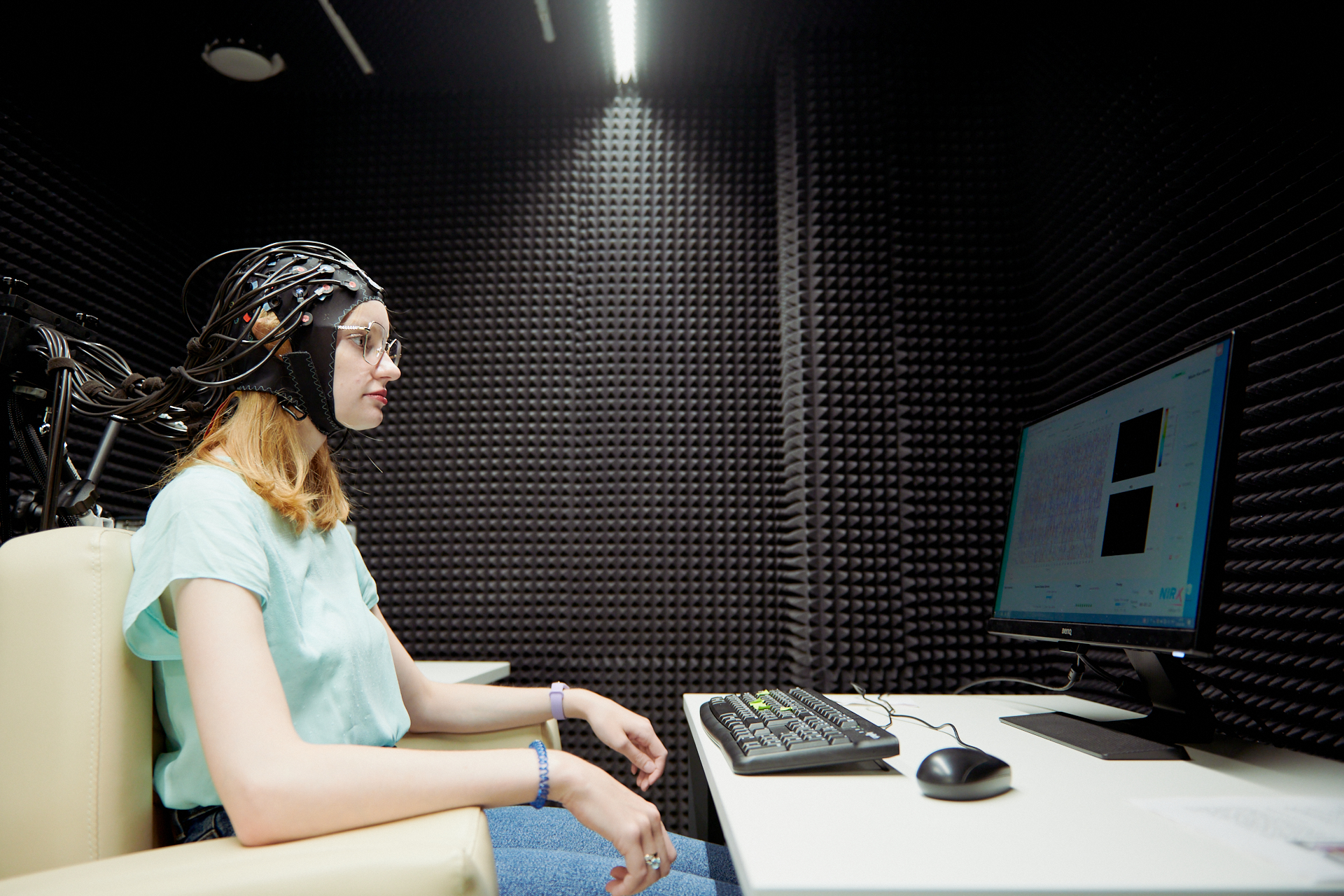
The project's goal is to create an effective system for detecting texts generated by bots. As a result, a prototype has been developed comprising a complete set of software solutions that can distinguish bot-generated texts from human-written texts across a wide range of bots and languages.
'The problem is not only to detect that generative AI models were used in writing a degree thesis. The challenge is much broader and concerns the entire society. Bot-generated texts should not be banned—this would be both pointless and impossible—but rather clearly labelled as such,' according to Vasilii Gromov.
To date, a system has been designed, a web service and a text preprocessing module have been developed, along with four AI models, all of which have an accuracy rate exceeding 90%. The system is planned to be integrated with SmartLMS in the near future.
Vasilii Gromov also discussed the implementation of projects focused on constructing a comprehensive bifurcation diagram for nonlinear partial differential equations and studying the patterns of cognitive time series.
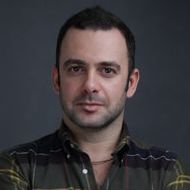
Matteo Feurra
Matteo Feurra, Associate Professor at the Institute for Cognitive Neuroscience and Leading Research Fellow at the Centre for Cognition and Decision Making, presented a study on the mechanisms of motion planning and execution, including the involvement of the human mirror neuron system, the use of motion tracking systems, and transcranial magnetic stimulation. The project investigates the role of the premotor cortex in planning human movements, the impact of posture on the mirror neuron system, and the effect of an object's spatial orientation on movement.

Anna Shestakova
Anna Shestakova, Director of the Institute for Cognitive Neuroscience, presented a project titled 'Cognitive Features in Children with Motor Disorders: Fundamental and Applied Aspects.' She said, 'We are conducting a study on the cognitive characteristics of children who undergo the most complex and unique muscle transplantation surgeries. Among other findings, while administering neuropsychological and neurolinguistic tests, our graduate Maria Koryakina identified patient characteristics such as impaired attention and memory deficits. These children also had problems with motor functions.'
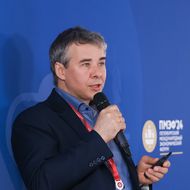
Alexey Ossadtchi
Alexey Ossadtchi, Director of the Centre for Bioelectric Interfaces and Professor at the School of Data Analysis and Artificial Intelligence, discussed the project 'EEG-Based fMRI Digital Twin.' The project aims to create an ecological visualisation of the activity of subcortical brain structures responsible for several important functions which remain poorly understood in humans, such as the formation of emotions (attachment, empathy), exploratory behaviour, and learning.
'Subcortical structures in humans have been studied very little because access to them using ecological methods is limited. We set a rather ambitious goal—to learn how to translate an encephalogram into a visualisation of the hemodynamics of subcortical brain structures. Subcortical activity plays a crucial role in the brain's stability across all aspects,' he explained.
A digital twin created as part of the project will provide access to the activity signal of the subcortical brain regions, based on EEG and an ML model.
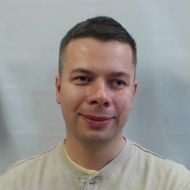
Denis Zakharov
Denis Zakharov, Leading Research Fellow at the Centre for Cognition and Decision Making, discussed an AI-based hearing diagnostic system which is currently being developed in collaboration with the team of the HSE Centre for Bioelectric Interfaces and clinicians from the L.I. Sverzhevsky Research Institute of Clinical Otorhinolaryngology. As part of this project, the scientists are developing biologically relevant mathematical models to explore the relationship between rhythmic brain activity and the processes of parsing speech flow into syntactic units. The result of their work is a neuromorphic generative model for online language processing. It demonstrates high processing performance in real time and, unlike AI-based systems, is capable of handling accelerated and fragmented speech signals, effectively reproducing similar properties observed in human experiments.
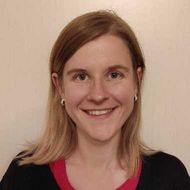
Svetlana Malyutina
Svetlana Malyutina, Deputy Director of the HSE Centre for Language and Brain, presented the project 'Age-Related Changes in Language Function.' The researchers investigate changes which can occur in a person's language function as they age. 'We are interested in how language function changes depending on the aging trajectory: along the healthy trajectory, when an elderly person remains active and may even continue to develop professionally, or along the trajectory of dementia, where cognitive impairment is so pronounced that independence is affected. There is also an intermediate path—the syndrome of mild cognitive decline, which may or may not progress into dementia. We seek to understand whether certain language characteristics can serve as predictive markers, indicating what might happen next with the cognitive functions of a particular individual as they age,' she said.

The speaker provided two examples of studies conducted over the past year. One focused on subjective complaints regarding cognitive functions. It was found that the severity of subjective complaints about language function in older adults is only moderately associated with their actual performance. The second study focused on the clinical significance of the verbal fluency task. The study revealed that mild cognitive decline syndrome is more accurately predicted by a model that considers the linguistic characteristics of the words produced in the verbal fluency task, rather than simply their number. 'This occurs, for example, because individuals with mild cognitive decline syndrome are more likely to switch between dissimilar words, whereas those within the normal range tend to group similar words together,' Svetlana Malyutina explained.
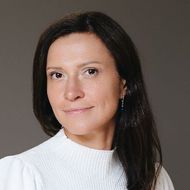
Olga Dragoy
Olga Dragoy, Director of the Centre for Language and Brain, discussed a number of the Centre's projects. She mentioned, in particular, that several simulator applications developed to assist the rehabilitation and skills training of individuals with speech and language impairments are being prepared for release on the RuStore. SLON, a mobile application for naming practice using pictures, is designed for the rehabilitation of patients with mild to moderate aphasia, recovering from a stroke. Patients use the application independently, receive feedback, and can export data to a specialist. The Leximetr mobile application is designed to assess adult reading skills, measuring reading speed and accuracy as well as the level of reading comprehension for individuals of all ages.

Olga Buivolova
The project of Olga Buivolova, Research Fellow at the Centre for Language and Brain, concerns non-invasive brain stimulation technology aimed at restoring and enhancing language function in individuals with post-stroke aphasia. A protocol was developed for a placebo-controlled trial, which is currently in progress.

Sergey Aksenov
Sergey Aksenov, Deputy Director for Research at the HSE Tikhonov Moscow Institute of Electronics and Mathematics, discussed the development of an electronic atlas of ex vivo dissections of language association tracts in the brain. The speaker emphasised that understanding the spatial structure of the pathways in the human brain is crucial for addressing many neurosurgical challenges. The most common method for creating a three-dimensional map of brain pathways is MRI image analysis. However, this approach provides a probabilistic result that does not always align with anatomical reality. The objective of the project is to map and illustrate the spatial structure of the brain's language-related pathways through analysis of ex vivo dissections of cadaveric specimens. This method provides a more accurate understanding of the tracts' locations.

Anna Shestakova presented the project ‘Projection and Modulation of Economic Behaviour,' which examines the influence of various social agents on reducing sugar consumption. The study revealed that both medical experts and peers have a similar impact on consumers’ decision-making. In studying the neuroeconomics of sweet food preference, the scientists found that high impulsivity is linked to a greater likelihood of developing dependence on sugary foods and drinks—those who love sweets tend to be more impulsive.
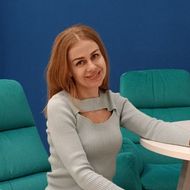
Julia Yeremenko
Julia Yeremenko, Research Fellow at the Centre for Cognition and Decision Making, discussed multisensory marketing, which leverages neurophysiological markers of hedonistic perception of taste. As part of the project, it is planned to use neuroprognosis to predict aggregated sales and preferences in the markets for goods and services, the banking sector, media communications, and donations. Additionally, research will be conducted on the mechanisms of sugar addiction.
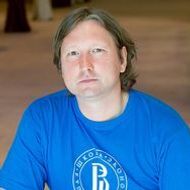
Vasily Klyucharev
Vasily Klyucharev, Head of the HSE International Laboratory of Social Neurobiology, discussed the impact of green spaces in urban environments on neurocognitive processes. The goal of the project is to create an urban environment index based on research data. With support from the Faculty of Geography and Geoinformation Technology, the NDVI, EVI, and NDWI were calculated, and an international greenery index was created. The scientists plan to adapt the model to analyse additional indicators collected for the Leningrad Region to further explore the interrelations between the urban environment and various factors impacting the well-being of the population.

Anna Izmalkova
Anna Izmalkova, Research Fellow at the Centre for Cognition and Decision Making, presented the results from studies focused on the neurobiological and psychological foundations of learning, intelligence, multilingualism, and cognitive reserve. The scientists are investigating the factors that contribute to cognitive reserve and developing methodologies to enhance cognitive reserve through switching between different language systems. The project aims to develop software for comprehensive diagnostics and formation of cognitive reserve. Additionally, the speaker announced the launch of a new Centre for Research on Intelligence and Cognitive Well-Being.
See also:
HSE Scientists Reveal What Drives Public Trust in Science
Researchers at HSE ISSEK have analysed the level of trust in scientific knowledge in Russian society and the factors shaping attitudes and perceptions. It was found that trust in science depends more on everyday experience, social expectations, and the perceived promises of science than on objective knowledge. The article has been published in Universe of Russia.
HSE Scientists Optimise Training of Generative Flow Networks
Researchers at the HSE Faculty of Computer Science have optimised the training method for generative flow neural networks to handle unstructured tasks, which could make the search for new drugs more efficient. The results of their work were presented at ICLR 2025, one of the world’s leading conferences on machine learning. The paper is available at Arxiv.org.
Neural Network Trained to Predict Crises in Russian Stock Market
Economists from HSE University have developed a neural network model that can predict the onset of a short-term stock market crisis with over 83% accuracy, one day in advance. The model performs well even on complex, imbalanced data and incorporates not only economic indicators but also investor sentiment. The paper by Tamara Teplova, Maksim Fayzulin, and Aleksei Kurkin from the Centre for Financial Research and Data Analytics at the HSE Faculty of Economic Sciences has been published in Socio-Economic Planning Sciences.
Larger Groups of Students Use AI More Effectively in Learning
Researchers at the Institute of Education and the Faculty of Economic Sciences at HSE University have studied what factors determine the success of student group projects when they are completed with the help of artificial intelligence (AI). Their findings suggest that, in addition to the knowledge level of the team members, the size of the group also plays a significant role—the larger it is, the more efficient the process becomes. The study was published in Innovations in Education and Teaching International.
Advancing Personalised Therapy for More Effective Cancer Treatment
Researchers from the International Laboratory of Microphysiological Systems at HSE University's Faculty of Biology and Biotechnology are developing methods to reduce tumour cell resistance to drugs and to create more effective, personalised cancer treatments. In this interview with the HSE News Service, Diana Maltseva, Head of the Laboratory, talks about their work.
Master’s Students of HSE, University of Campinas, and Tsinghua University Publish Joint Student Research Collection
Master’s students of the HSE ISSEK programme ‘Science, Technology and Innovation Management and Policy’ have released a joint research collection with the University of Campinas (Brazil) and Tsinghua University (China) titled ‘Being Innovative or Being on the Safe Side—Managing the Risk of Failure.’ The authors explore how organisations perceive risks and embrace innovation within different cultural contexts.
‘A Turn Away from Stereotypes’: Moscow Hosts ‘Researching the Deaf Community’ Conference
On October 17–19, 2025, the third annual interdisciplinary conference ‘Researching the Deaf Community 2025: on the Periphery of Attention’ took place at GES-2 House of Culture in Moscow. The event was organised with the participation of the HSE International Laboratory for Social Integration Research. HSE University Vice Rector Irina Martusevich addressed attendees at the opening ceremony.
Exploring the Mind: HSE Scientists Discuss Cognitive Technologies of the Future
Why we make irrational decisions, how the brain responds to fakes, and whether neural networks are capable of thinking—these were the topics discussed by early-career scientists of HSE University during the NAUKA 0+ science festival. The event brought together students and experts from various fields, united by a common goal—to deepen their understanding of the human brain and cognitive technologies.
HSE Researchers Assess Creative Industry Losses from Use of GenAI
Speaking at the IPQuorum.Music forum on October 15, Leonid Gokhberg, HSE First Vice Rector, and Daniil Kudrin, an expert at the Centre for Industry and Corporate Projects of HSE ISSEK, presented the findings of the first study in Russia on the economic impact of GenAI on creative professions. The analysis shows that creators’ potential losses could reach one trillion roubles by 2030.
International Dialogue on Urban Development: Dynamic Urbanism and Green Infrastructure
In September 2025, the HSE Faculty of Urban and Regional Development (FURD) hosted a delegation of leading scholars and urban development experts from China. Two seminars were held at the Shukhov Lab with the participation of Chinese colleagues: the first focused on green infrastructure, while the second explored the theme of dynamic urbanism. In addition, a meeting between the Chinese delegation and representatives of FURD took place at the university’s main building on Pokrovsky Bulvar. The participants discussed opportunities for expanding cooperation between universities and research centres.


